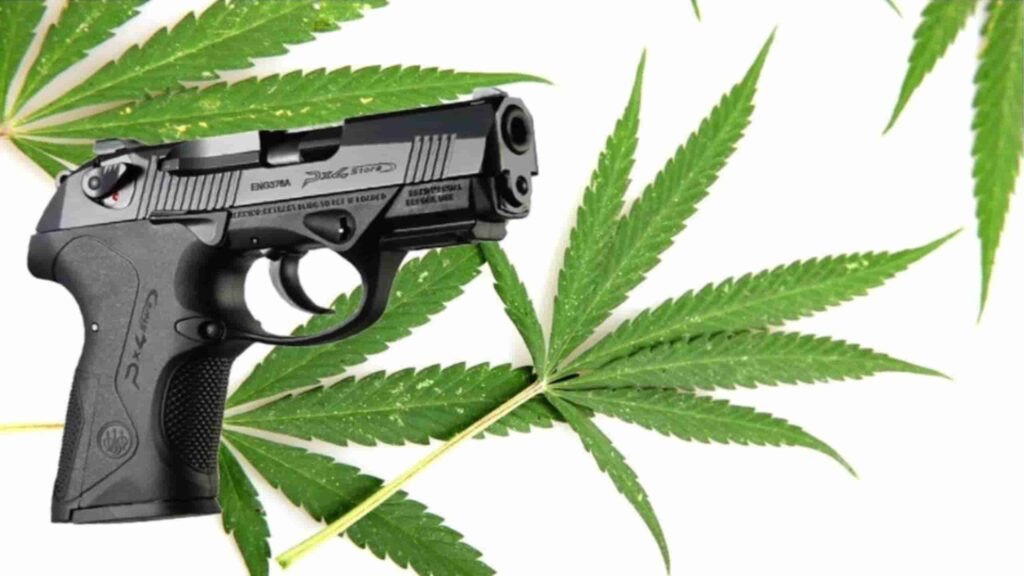Navigating the Intersection of Concealed Carry Permits and Medical Marijuana Cards in Virginia
In recent years, the United States has witnessed a complex interplay between state laws regarding firearm ownership and the legalization of medical marijuana. Virginia, like many other states, finds itself at the intersection of these two contentious issues. This article explores the legal landscape surrounding the coexistence of concealed carry permits and medical marijuana cards in Virginia, shedding light on the challenges faced by individuals seeking to exercise their rights in both realms.
Concealed Carry Laws in Virginia:
Virginia has a longstanding tradition of respecting the Second Amendment rights of its residents. As of the last available information in 2022, the state allows qualified individuals to apply for and obtain a concealed carry permit. This permit enables holders to carry a concealed handgun for personal protection, subject to certain restrictions and regulations.
To qualify for a concealed carry permit in Virginia, applicants must meet various criteria, including age requirements, completion of a firearms safety course, and compliance with federal and state laws. Background checks are typically conducted to assess an applicant’s criminal history, mental health status, and other factors that may impact their eligibility.
Medical Marijuana Laws in Virginia:
Virginia has also experienced significant changes in its stance on marijuana. In 2020, the state legalized medical marijuana for qualifying patients suffering from specific medical conditions. Patients with a valid medical marijuana card can legally purchase and use cannabis products under the supervision of a registered healthcare provider.
However, the conflict arises when individuals possessing both a concealed carry permit and a medical marijuana card attempt to reconcile these seemingly incompatible rights. The crux of the issue lies in the federal classification of marijuana as a Schedule I controlled substance, while firearms and their regulations are governed by federal law.
Federal Firearms Laws and Marijuana:
The Bureau of Alcohol, Tobacco, Firearms and Explosives (ATF), a federal agency, has been consistent in its stance regarding the intersection of firearms and marijuana. Federal law prohibits any person who is an “unlawful user or addicted to any controlled substance” from possessing firearms or ammunition.
Since marijuana remains illegal at the federal level, individuals who use it, even for medicinal purposes in compliance with state law, risk falling afoul of federal firearms regulations. This creates a conundrum for those seeking to exercise their Second Amendment rights while simultaneously benefiting from medical marijuana treatment.
Legal Dilemma:
Virginia’s residents find themselves caught in a legal dilemma, grappling with conflicting state and federal regulations. While state law may permit the use of medical marijuana and the possession of a concealed carry permit independently, the clash with federal law introduces uncertainty and potential legal consequences.
One crucial aspect of this predicament is the information required during the application process for a concealed carry permit. Applicants are often asked about their drug use, and the inconsistency between state and federal marijuana laws places individuals in a precarious position. Failing to disclose medical marijuana use may jeopardize the approval of a concealed carry permit, while admitting such use may lead to federal repercussions.
Court Challenges and Precedents:
The legal landscape surrounding the intersection of concealed carry permits and medical marijuana cards has yet to be definitively settled. Some states have seen legal challenges, with individuals arguing that the denial of a concealed carry permit based on medical marijuana use infringes upon their Second Amendment rights.
However, court decisions have been mixed. In some cases, judges have sided with the rights of states to regulate firearms within their borders, while in others, the federal prohibition on marijuana has been upheld as grounds for denying firearm ownership rights.
Practical Considerations:
Individuals contemplating the acquisition of both a concealed carry permit and a medical marijuana card in Virginia must carefully consider the potential legal ramifications. Legal experts recommend consulting with an attorney well-versed in both firearms and marijuana laws to navigate this complex terrain.
Moreover, the evolving nature of cannabis legislation and its potential federal reclassification could further complicate matters. Keeping abreast of legal developments and staying informed about changes in both state and federal laws is crucial for those seeking to navigate the delicate balance between exercising their Second Amendment rights and accessing medical marijuana treatments.
Conclusion:
The coexistence of concealed carry permits and medical marijuana cards in Virginia reflects the broader national debate over conflicting state and federal regulations. As individuals seek to exercise their rights in both realms, they face a legal landscape fraught with uncertainty and potential pitfalls.
Until a comprehensive resolution is reached at the federal level, Virginians must carefully navigate the intricacies of state and federal laws. Legal advice, open communication with healthcare providers, and staying informed about legislative developments are essential for those seeking to reconcile their rights to bear arms with their medical needs in a rapidly evolving legal landscape.

Dr. Nicholas Marsh has been a respected board-certified anesthesiologist in Northern Virginia for over 35 years. Recognized as a top doctor by FindaTopDoc.com, his vision for providing top-quality medical services is driven by his passion for patient comfort and dignity.

